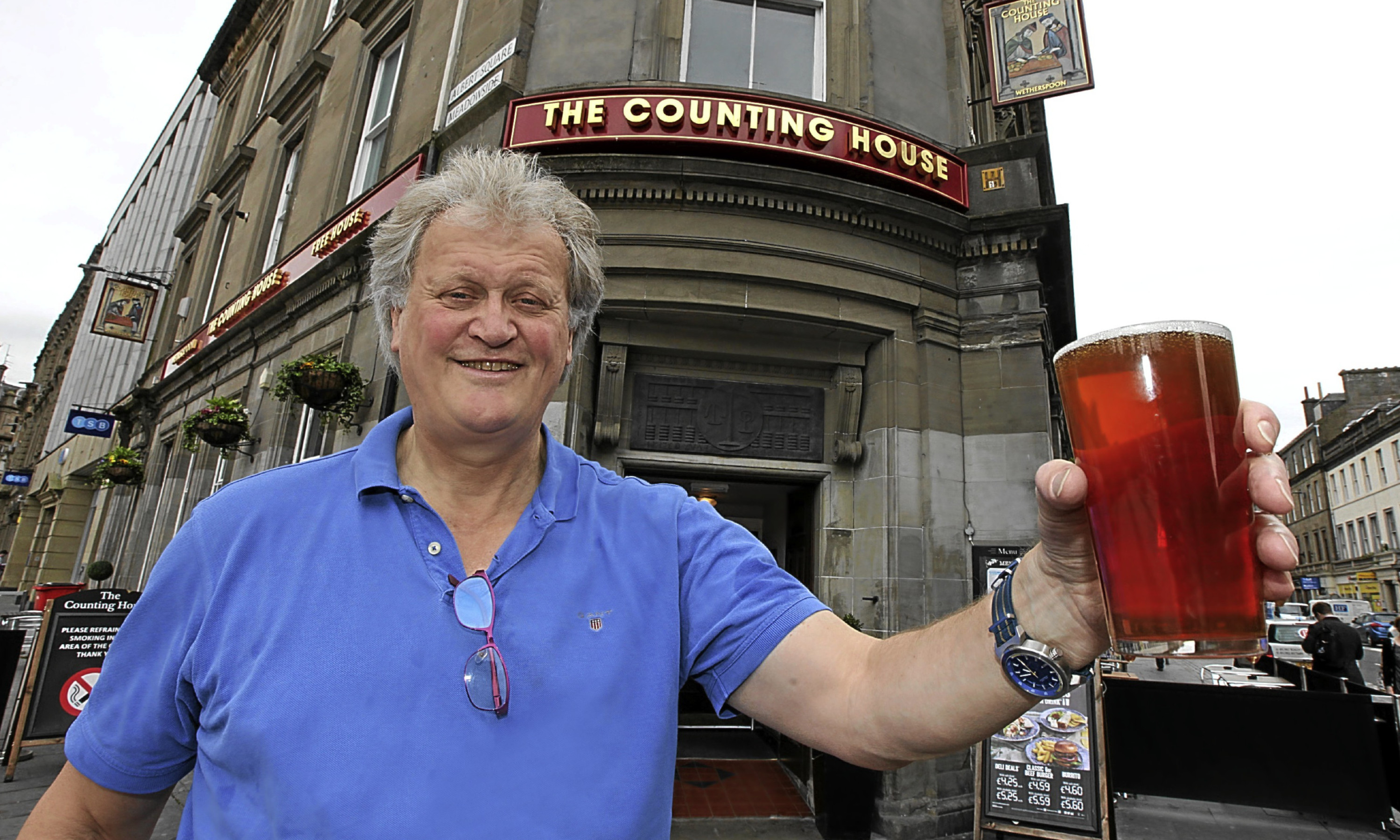The founder and chairman of pubs giant JD Wetherspoon has warned Tayside pub goers of the dangers of staying in Europe during a tour of the chain’s hostelries.
Tim Martin founded Wetherspoon’s in 1979 and has overseen the phenomental growth of the business to a chain of almost 1,000 outlets and more than 37,000 staff.
The group has a strong presence in Tyside and Fife, including The Counting House in Dundee’s Reform Street which was Mr Martin’s first port of call yesterday.
He later made his first ever visit to Jolly’s Hotel in Broughty Ferry – a property his firm invested more than £3 million in before reopening its doors in 2014 – and was due to visit other pubs in Perth and Stirling.
Mr Martin said his personal pub crawl had been motivated by the upcoming in/out referendum on EU membership.
He is one of the most high profile business people in the leave camp and said his view was shaped by the effectiveness of the European Union rather than any specific economic policies.
He said he had already encountered a range of views on the subject during visits to some of thew group’s more northerly pubs but said he was just glad of the opportunity to have the conversation.
“No-one has said to me I shouldn’t speak out,” Mr Martin said.
“But I think it is important to have the debate as you get better decisions that way.
“Obviously not everyone agrees with me, but that is one reason why democracy works.”
Mr Martin has regularly been in the spotlight for his views.
He has been a vocal critic on VAT on food sales in public houses, claiming it hands an unfair advantage to the major supermarkets which are not subject to the tax.
Most recently Mr Martin has been outspoken about what he sees as the likely negative employment impact of the recently introduced National Living Wage, a levy that has placed an increased burden both on his own business and the wider hospitality trade.
He said he wasn’t averse to the concept of higher wages for lower paid workers and pointed out that Wetherspoon’s existing hourly rate was already close to the new minimu.
Instead he said his argument was against the imposition of a new standard pay rate that “isn’t set economically or scientifically.”
He said raising the minimum rate arbitrarily came with the risk that companies could pull back on recruitment plans and impact on employment .
